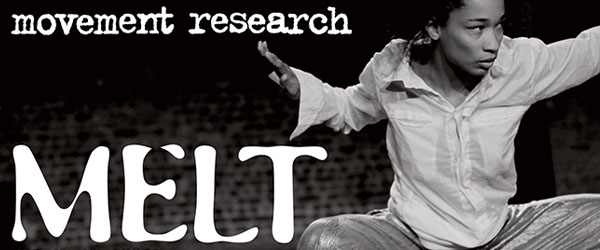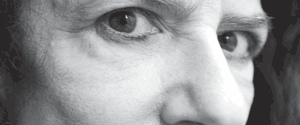Critical Correspondence
- dance, poetry and dance
- Comments Off on Somatic Poetry
- Writings
- 6.4.08
Somatic Poetry
by Clarinda Mac Low
The experience of the experience. Is there a way to talk and write about performance that mirrors the experience of the experience? Rather than a value judgment or a critical analysis, can we share a sense of our inner reaction?
I am partial to clarity and standard structure and prose exposition, but part of me is unable to adhere to this even under the most prosaic circumstances. A poetic sensibility always starts to creep in—that is, a desire to bring language outside of itself into meanings beyond meanings, or rhythm, or images. to a non-verbal state of understanding.
In my initial discussion of how this series of online essays (or “blog”) would proceed, I talked about “non-verbal ideas.” This generated a few interesting reactions from friends and colleagues—some contended that ideas were by definition verbal, so a “non-verbal idea” was a non-starter. One comment online that all ideas begin non-verbally, so of course there are “non-verbal ideas.)
Recently I had the revelation (new to me—perhaps obvious to many others) that dance is often, on a basic level, somatic poetry. I came to this idea while watching a Fresh Tracks show of new choreography from seven (mostly) emerging choreographers at Dance Theater Workshop in January, 2008. Watching so many works at once brought into high relief the common thread between all the wildly diverse works. Three pieces especially, by Rebecca Serrell, Otto Ramstad and Maggie Bennett, brought this into high relief. While watching their work, I was struck by how the importance of rhythm, time, juxtaposition and musicality in dance created the same impression that poetry often leaves. This poetry of the body is perhaps the closest I can find to a “non-verbal idea,” or at least the clearest version. A non-verbal performance form leaves a poetic trace that is difficult to represent in narrative language. Maybe the most appropriate review of many dance works is actually a poem rather than a description of events of a series of critical thoughts.
In this vein, I’m including here two examples of poetic reviews and reactions. The first is a reaction to a dress rehearsal of Mourning, a collaboration between the choreographers Eiko and Koma and the pianist Margaret Leng Tan, performed at the Japan Society in Fall, 2007.
EKM in Mourning
Every road we traveled
every black safari
brought us closer to death. 

We were humbled and became
another animal.
We left our skins and forefathers behind
and the journey, oh the journey—
it scoured us out.
Trouble lent us eloquence, but too much trouble dragged us down.
Drown drown this instinct to frighten what frightens us.
Let me be eaten, just for once.
I keep dying without dying and I cannot cannot cannot keep being so…
I am betrayed by a terrible thunder
relentless, reckless, wrecked and sundered.
It rises up at me and tears me open;
the last maimed bits of a ropeless soul.
You need me, soul, don’t deny it–the remnant of your pain,
the carefully burned and broken doll.
A set of broken promises
skewers us through and through.
Oh excellent trap, burn me now
before I melt completely.
Prepare for flight
we are dying
The second example is excerpts from a series of notes I took in November 2007 while watching an informal showing of Macho, a work in development by Kathy Westwater.
Kathy Westwater rehearsal for macho (11/27/07)
Sound of writing on the door.
Whispered “go”
Impassive faces
Dreamers finding patterns become sleepwalkers
Different bodies highlight difference–every nuance shows
animal genitalia
(well of course we think it)
the back of a neck and a shoulder blade
The body out of order
Look at us how?
What are we to think?
The drama of being upright.
Section to section, or eventual overlapping flow?
Sullen J
disconsolate drunken showgirl hugs the wall and throws her legs around
because she can
it comes naturally
or do her legs throw her around?
something is out of control U tethered and gagged by something she did to herself.
her size makes it frightening.
tick of the clock
Wrap each other?
too much involvement–you do it to yourself; there’s no one else to blame
cobwebbed cubicle chorus
Aggressively close but not direct
the threat is oblique–will it all explode?
Terrible wedding of the undead
Passively attempting escape
accumulation of detritus
honeymoon primate sounds & 
the frustrated bridesmaids 
tied to their beds
Next week: The Crowd


